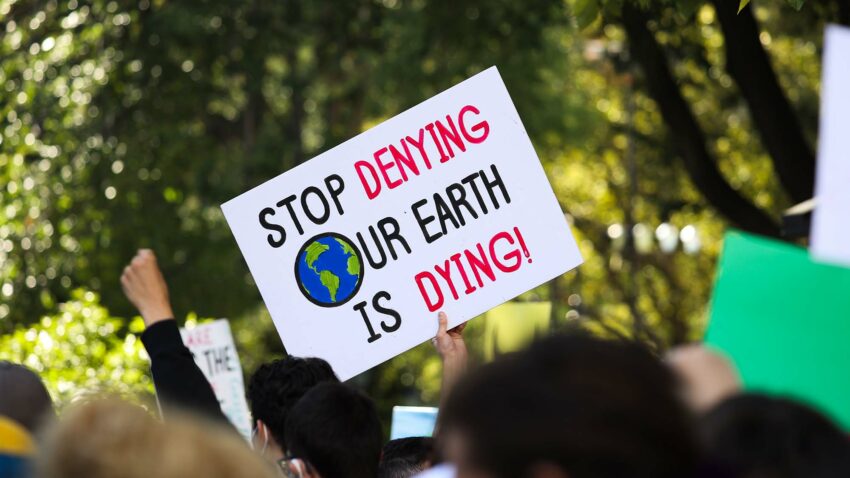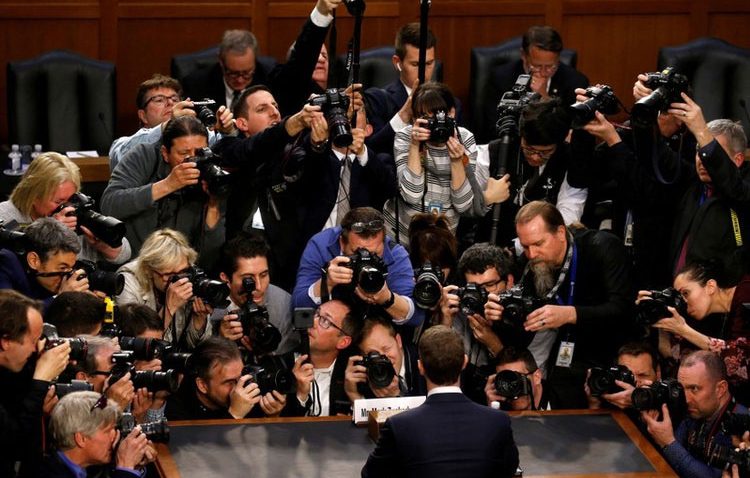Climate change denial is an all too popular refrain. National media outlets frequently herald its prevalence. Recently, the New York Times questioned which was worse, climate denial or climate hypocrisy, while the Washington Post editorial board opined that climate change denial is “unforgivable.” NPR routinely covers both climate change denial and climate misinformation.
Politicians do their part to keep the issue top-of-mind. Since the environment is among the many fault lines separating Democrats and Republicans, climate change denial is a characterization frequently leveled against lawmakers. One non-partisan policy group assembles a list of climate change deniers in both the House of Representatives and Senate with each new Congress.
On social media, claims of climate change denial are predictably rampant. A 2022 study published by Nature finds “a large increase in ideological polarization during UN Climate Change Conference in Glasgow (COP26), following low polarization between COP20 and COP25” based on an analysis of Twitter data from 2014 to 2021.
The unassailable truth about climate change denial, however, is that it scarcely exists in America. According to a 2021 poll by the AP, the NORC Center and the Energy Policy Institute at the University of Chicago, a mere 10% of Americans don’t believe that climate change is real, whereas the vast majority of Americans (75%) believe that it is.
These findings correspond with a 2021 poll by the Washington Post and ABC News in which 67% of respondents regard climate change as a serious problem, let alone acknowledge its existence. Similarly, a 2021 survey by Pew Research Center finds that majorities of Americans believe society is doing too little to reduce the effects of climate change.
The bluster surrounding climate change denial is a red herring that says more about our balkanized culture than the attitudes of the average American. For environmental groups, this represents a valuable opportunity to temper today’s counterproductively divisive rhetoric on the topic and, in so doing, compel more people to take action to reduce carbon emissions.
Think of the approach as “mining the middle”—using common ground issues, including the recognition of climate change’s importance, to educate and mobilize stakeholders. However, since various research studies reveal significant differences in attitudes on the topic based on age, race, ethnicity and political affiliation, organizations will need to be targeted and nuanced in their efforts.
Prioritize the stakeholders who matter most. Given that attitudes and behaviors of donors, volunteers and advocates are markedly different, environmental groups should use market research to identify the population segments with the greatest potential to be current and future supporters while assessing their awareness of and attitudes toward the organization and its peers. Without such clarity, organizations will have no choice but to rely on one-size-fits-all engagement strategies that will inevitably prove inefficient.
Think locally, not just globally. Climate change is typically framed in universal terms, but stakeholders generally view environmental issues through a local lens. Therefore, while environmental groups should examine the global causes of climate change and the need for a global response to counter its effects, they should also emphasize how climate change is impacting local ecosystems and communities. Likewise, they would do well to create local connections with community leaders, lawmakers and other stakeholders.
Lean into the science. For most environmental groups, there is no greater means of gaining trust and influence with stakeholders than demonstrating their use of science. Organizations should explain the extent to which they use scientific data to educate stakeholders about environmental issues, inform policy prescriptions and measure the efficacy of their conservation efforts. They, too, should highlight the scientific credentials of key staffers.
Speak in measured terms. The news media are using increasingly alarmist terms when addressing climate change, including “climate catastrophe” and “climate emergency,” according to a 2021 study by the University of Colorado. However, such terms alienate large swaths of consumers, including those who prioritize environmental issues and those who are uncertain of climate change’s importance.
It’s not the responsibility of environmental groups to reduce polarization in society, but it is their mission to educate and mobilize stakeholders to protect the environment. Climate change is a singular threat that necessitates collective action in the U.S., the world’s second-largest emitter of carbon. Mine the middle.
The founder and principal of Timbre Strategies, Bob Knott, has led brand studies on behalf of such environmental groups as the Chesapeake Bay Foundation, Everglades Foundation and Nature Conservancy while working with such Fortune 500 companies as DuPont, GE, Walmart and Waste Management to shape and communicate their environmental efforts.

